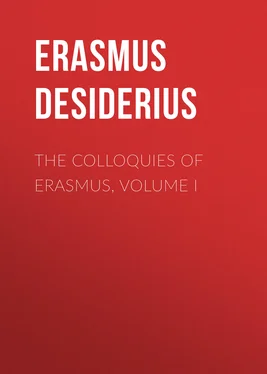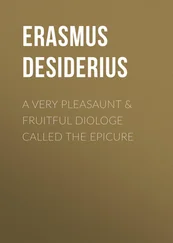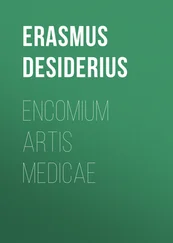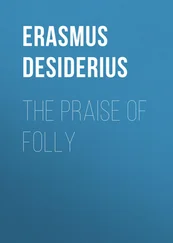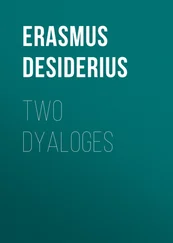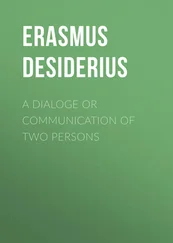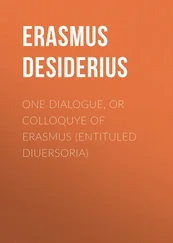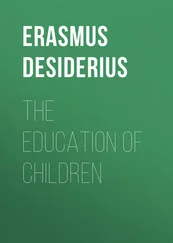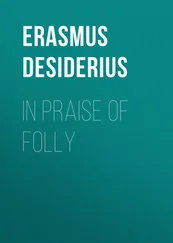Desiderius Erasmus - The Colloquies of Erasmus, Volume I
Здесь есть возможность читать онлайн «Desiderius Erasmus - The Colloquies of Erasmus, Volume I» — ознакомительный отрывок электронной книги совершенно бесплатно, а после прочтения отрывка купить полную версию. В некоторых случаях можно слушать аудио, скачать через торрент в формате fb2 и присутствует краткое содержание. Жанр: foreign_prose, foreign_antique, на английском языке. Описание произведения, (предисловие) а так же отзывы посетителей доступны на портале библиотеки ЛибКат.
- Название:The Colloquies of Erasmus, Volume I
- Автор:
- Жанр:
- Год:неизвестен
- ISBN:нет данных
- Рейтинг книги:5 / 5. Голосов: 1
-
Избранное:Добавить в избранное
- Отзывы:
-
Ваша оценка:
- 100
- 1
- 2
- 3
- 4
- 5
The Colloquies of Erasmus, Volume I: краткое содержание, описание и аннотация
Предлагаем к чтению аннотацию, описание, краткое содержание или предисловие (зависит от того, что написал сам автор книги «The Colloquies of Erasmus, Volume I»). Если вы не нашли необходимую информацию о книге — напишите в комментариях, мы постараемся отыскать её.
The Colloquies of Erasmus, Volume I — читать онлайн ознакомительный отрывок
Ниже представлен текст книги, разбитый по страницам. Система сохранения места последней прочитанной страницы, позволяет с удобством читать онлайн бесплатно книгу «The Colloquies of Erasmus, Volume I», без необходимости каждый раз заново искать на чём Вы остановились. Поставьте закладку, и сможете в любой момент перейти на страницу, на которой закончили чтение.
Интервал:
Закладка:
Such being the man's style throughout, he has nevertheless not shrunk from interweaving his flowers with my crowns; either pleasing himself in a most senseless manner, or having a very ill opinion of the judgment of divines. For these things were composed for their benefit, all of whom he supposes to be such blockheads that they will not instantly detect the patch-work he has so awkwardly sewn together. So abjectly does he everywhere flatter France, Paris, the theologians, the Sorbonne, the Colleges, no beggar could be more cringing. Accordingly, if anything uncomplimentary seems to be said against the French, he transfers it to the British; or against Paris, he turns it off to London. He added some odious sayings as if coming from me, with the view of stirring up hatred against me amongst those by whom he is grieved to know me beloved. It is needless to dwell upon the matter. Throughout he curtails, makes additions, alterations after his fashion, like a sow smeared with mud, rolling herself in a strange garden, bespattering, disturbing, rooting up everything. Meanwhile, he does not perceive that the points made by me are quite lost. For example, when to one who says , 'From a Dutchman you are turned into a Gaul,' 1 1 Gallus: meaning also a Cock.
the answer is made , 'What? was I a Capon then, when I went hence?': he alters 'From a Dutchman you are turned into a Briton. What? was I a Saxon, then, when I went hence?' Again, when the same speaker had said , 'Your garb shows that you are changed from a Batavian into a Gaul,' he puts 'Briton' for 'Gaul'; and when the speaker had replied , 'I had rather that metamorphosis, than into a Hen,' alluding to 'Cock:' he changed 'Hen' into 'Bohemian.' Presently, when there is a joke , 'that he pronounces Latin in French style,' he changes 'French' into 'British,' and yet allows the following to stand , 'Then you will never make good verses, because you have lost your quantities'; and this does not apply to the British. Again, when my text reads , 'What has happened to the Gauls' (cocks) 'that they should wage war with the Eagle?' he thus spoils the joke , 'What has happened to the pards, that they should go to war with the lilies? as if lilies were in the habit of going forth to war. Occasionally he does not perceive that what follows his alterations does not hang together with them. As in the very passage I had written , 'Is Paris free from the plague?' he alters , 'Is London free 2 2 Immunis instead of immune agreeing with Londinum.
from the plague?' Again, in another place, where one says , 'Why are we afraid to cut up this capon?' he changes 'capon' into 'hare'; yet makes no alteration in what follows , 'Do you prefer wing or leg?' Forsooth, although he so kindly favours the Dominican interest that he desired to sit among the famous Commissaries: nevertheless he bears with equal mind a cruel attack on Scotus. For he made no change in what one says in my text , 'I would sooner let the whole of Scotus perish than the books of one Cicero.' But as these things are full of folly, so very many of the contents bear an equal malice joined to folly. A speaker in my text rallies his comrade, who, although of abandoned life, nevertheless puts faith in indulgentiary bulls. My Corrector makes the former confess that he, along with his master Luther, was of opinion that the Pope's indulgences were of no value; presently he represents the same speaker as recanting and professing penitence for his error. And these he wants to appear my corrections. O wondrous Atlases of faith! This is just as if one should feign, by means of morsels dipped in blood, a wound in the human body, and presently, by removing what he had supplied, should cure the wound. In my text a boy says , 'that the confession which is made to God is the best;' he made a correction, asserting 'that the confession which is made to the priest is the best.' _Thus did he take care for imperilled confession. I have referred to this one matter for the sake of example, although he frequently indulges in tricks of this kind. And these answer to the palinode (recantation) which he promises in my name in his forged preface. As if it were any man's business to sing a palinode for another's error; or as if anything that is said in that work of mine under any character whatever, were my own opinion. For it does not at all trouble me, that he represents a man not yet sixty, as burdened with old age. Formerly, it was a capital offence to publish anything under another man's name; now, to scatter rascalities of this kind amongst the public, under the pretended name of the very man who is slandered, is the sport of divines. For he wishes to appear a divine when his matter cries out that he does not grasp a straw of theological science. I have no doubt but that yonder thief imposed with his lies upon his starved printer; for I do not think there is a man so mad as to be willing knowingly to print such ignorant trash. I ceased to wonder at the incorrigible effrontery of the fellow, after I learnt that he was a chick who once upon a time fell out of a nest at Berne, entirely [Greek: hek kakistou korakost kakiston hôon]. This I am astonished at, if the report is true: that there are among the Parisian divines those who pride themselves on having at length secured a man who by the thunderbolt of his eloquence is to break asunder the whole party of Luther and restore the church to its pristine tranquility. For he wrote also against Luther as I hear. And then the divines complain that they are slandered by me, who aid their studies in so many night-watches; while they themselves willingly embrace monsters of this description, who bring more dishonour to the order of divines and even of monks, than any foe, however foul-mouthed, can do. He who has audacity for such an act as this, will not hesitate to employ fire or poison. And these things are printed at Paris, where it is unlawful to print even the Gospel, unless approved by the opinion of the faculty.
Интервал:
Закладка:
Похожие книги на «The Colloquies of Erasmus, Volume I»
Представляем Вашему вниманию похожие книги на «The Colloquies of Erasmus, Volume I» списком для выбора. Мы отобрали схожую по названию и смыслу литературу в надежде предоставить читателям больше вариантов отыскать новые, интересные, ещё непрочитанные произведения.
Обсуждение, отзывы о книге «The Colloquies of Erasmus, Volume I» и просто собственные мнения читателей. Оставьте ваши комментарии, напишите, что Вы думаете о произведении, его смысле или главных героях. Укажите что конкретно понравилось, а что нет, и почему Вы так считаете.
